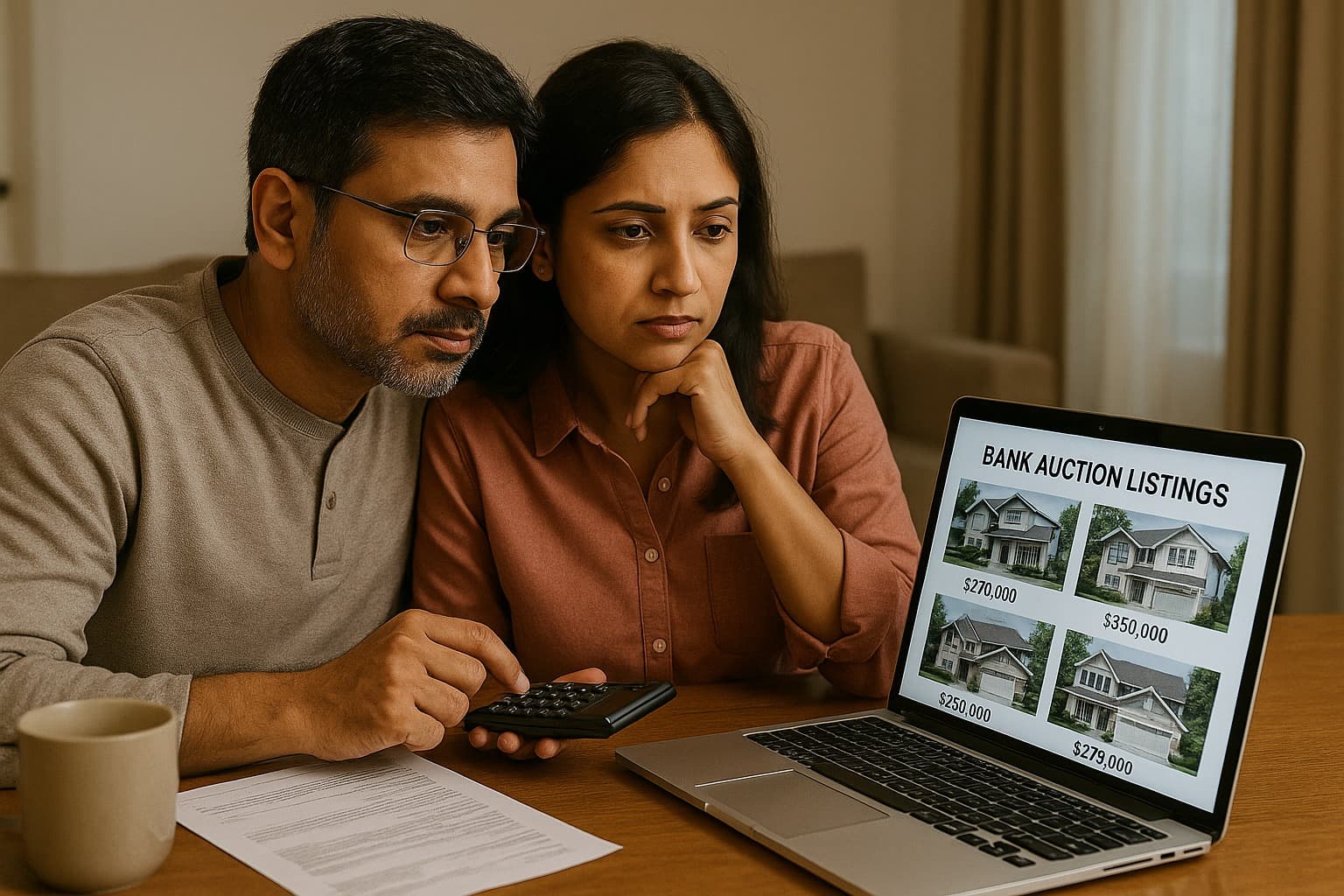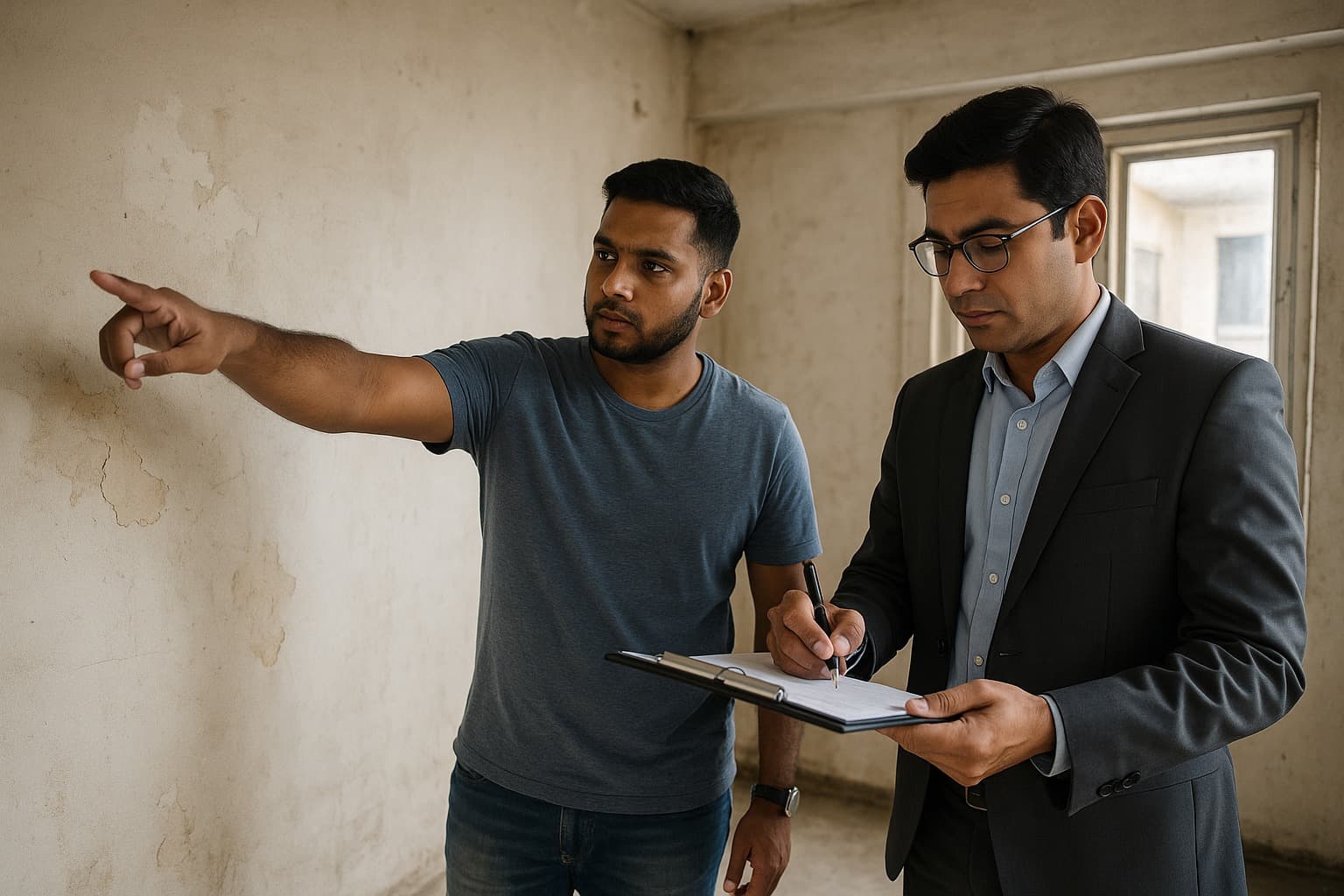How to Buy a Foreclosed Property: A Human Guide
Summary
Buying foreclosed properties in India offers potential savings but demands thorough research, legal verification, and financial preparation. This guide provides a human-centric, step-by-step approach to navigate the process safely and profitably.

Buying a home is one of the most thrilling chapters of life. You imagine mornings with sunlight streaming into your favorite corner, evenings with family laughter filling the rooms, and weekends spent enjoying your own private space. But what if there was a way to make this dream come true at a bargain price? That’s where foreclosed properties come in.
Purchasing a foreclosed property or bank auction home can be a golden opportunity, but it’s not as simple as walking into a regular sale. It requires patience, research, and a careful understanding of the process of purchasing bank auction homes. Done right, it’s not only affordable but can also be a smart long-term investment. Done poorly, it can lead to legal hassles and financial stress. Let’s explore how to buy a foreclosed property in India in a human, practical, step-by-step way.
1. Understanding Foreclosed Properties
Foreclosed properties are homes repossessed by banks or financial institutions after the previous owner failed to repay their loan. These property repossession cases often lead to auctions or distress sales in India, offering buyers the chance to purchase property below market value.
The appeal is obvious: lower prices and potential high returns. But here’s the human side — buying a foreclosed home means stepping into someone else’s story. These properties often carry hidden costs, unfinished repairs, or pending dues. Understanding the reality behind the risks and benefits of buying foreclosed real estate is the first step toward making a wise decision.
2. Why Consider a Foreclosed Property
Many buyers shy away from foreclosures due to perceived complications. Yet, there are significant benefits:
Lower Purchase Price: Often 10–30% below market value.
Investment Potential: If the property is in a prime location, appreciation can be substantial.
Faster Possession: Compared to new constructions, some repossessed properties allow for quicker move-in.
These advantages make it worth exploring, especially for buyers with a clear plan and careful approach.
3. Risks You Shouldn’t Ignore
Buying a foreclosed property has its challenges:
Legal Uncertainty: Some properties may have unclear titles or pending litigation.
Hidden Costs: Repairs, unpaid property taxes, or maintenance fees may be your responsibility.
Condition of Property: Many foreclosed homes require renovations or basic repairs.
Understanding these risks ensures you approach the process realistically and avoid unpleasant surprises.
4. Finding Repossessed Properties
The first step in how to find repossessed properties for sale is research.
Bank Websites: Many banks list repossessed homes and upcoming auctions online.

Real Estate Portals: Some portals specialize in bank auction homes and foreclosures.
Trusted Agents: Experienced real estate agents can guide you to genuine deals.
Finding the right property requires patience, but it’s crucial to avoid scams and wasted effort.
5. Legal Checklist for Foreclosure Buyers
A solid legal foundation is essential. Before bidding or buying, check:
Title Verification: Ensure the property has a clear, undisputed title.
Pending Dues: Verify unpaid taxes, maintenance fees, or utility bills.
Encumbrance Certificate: Confirms the property is free from legal liabilities.
Court Orders or Notices: Ensure there are no ongoing litigations.
A thorough legal checklist for foreclosure property buyers protects you from post-purchase headaches.
6. Step-by-Step Process to Buy a Foreclosed Property
Here’s a structured approach:
Step 1: Research Identify foreclosed properties through banks, portals, or brokers. Check market value and potential repair costs.
Step 2: Physical Inspection Visit the property. Inspect plumbing, electrical systems, and structural integrity. A picture is never enough.
Step 3: Verify Legal Documents Title deeds, property registration, and tax receipts must be checked meticulously.
Step 4: Understand Auction or Sale Rules If it’s a bank auction home, know the bidding process, deposit requirements, and timelines.
Step 5: Arrange Financing Ensure your loan or funds are ready. Foreclosed purchases often need faster payments than traditional sales.
Step 6: Place Your Bid or Offer Keep repair costs, location, and resale potential in mind. Don’t get emotionally carried away.
Step 7: Finalize Sale and Registration After winning a bid or negotiating a deal, complete legal formalities, pay taxes, and take possession.
This step-by-step guide to buying a foreclosed property in India ensures your approach is structured and safe.
7. Financial Considerations
Even if the price is lower, planning finances is essential:
Factor in repairs, taxes, and maintenance.

Compare real estate deals and discounts offered by banks.
Ensure your mortgage or home loan aligns with property price and timeline.
These legal and financial precautions when buying foreclosed property prevent unpleasant surprises.
8. Tips for Safe and Profitable Purchase
Always inspect the property in person.
Work with agents experienced in repossession sales.
Budget for renovations and hidden costs.
Verify documents multiple times.
Consider location and future resale potential.
Following these tips helps you understand how to buy foreclosure properties safely and profitably, turning potential risks into opportunities.
9. Emotional Perspective: Patience and Care
Buying a foreclosed home requires emotional intelligence. It’s not just numbers; it’s stepping into a process where the previous owner’s story and unforeseen challenges exist. Approaching it with patience, curiosity, and care ensures you make a smart decision that brings joy, not stress. Many buyers who patiently follow the process end up with not just a bargain, but a home that meets both financial and emotional goals.
Final Thoughts
Buying a foreclosed property is a journey that requires knowledge, planning, and patience. Understanding how bank auctions work for foreclosed homes, inspecting the property, verifying legal documents, and preparing finances ensures that your purchase is safe and profitable.
In India, foreclosures are a unique opportunity — offering affordability and potential high returns. But it’s not a shortcut; it’s a careful, methodical approach. When done correctly, investing in a distress sale property in India can bring both a home and a long-term investment, safely and satisfyingly.
Summary (100 words)
Buying a foreclosed property in India can offer below-market prices and investment potential, but requires careful planning. Start by researching bank auction homes and repossession sales via banks, portals, or trusted agents. Inspect properties physically and verify legal documents thoroughly. Check for pending dues, encumbrances, and litigation to avoid complications. Understand auction rules and arrange finances in advance. Budget for repairs and hidden costs. Following a step-by-step guide to buying a foreclosed property in India ensures safety and profitability. With patience and diligence, buyers can secure affordable, rewarding homes while mitigating risks.
